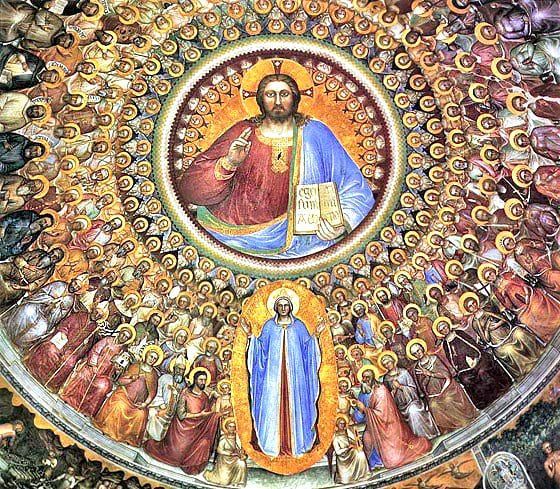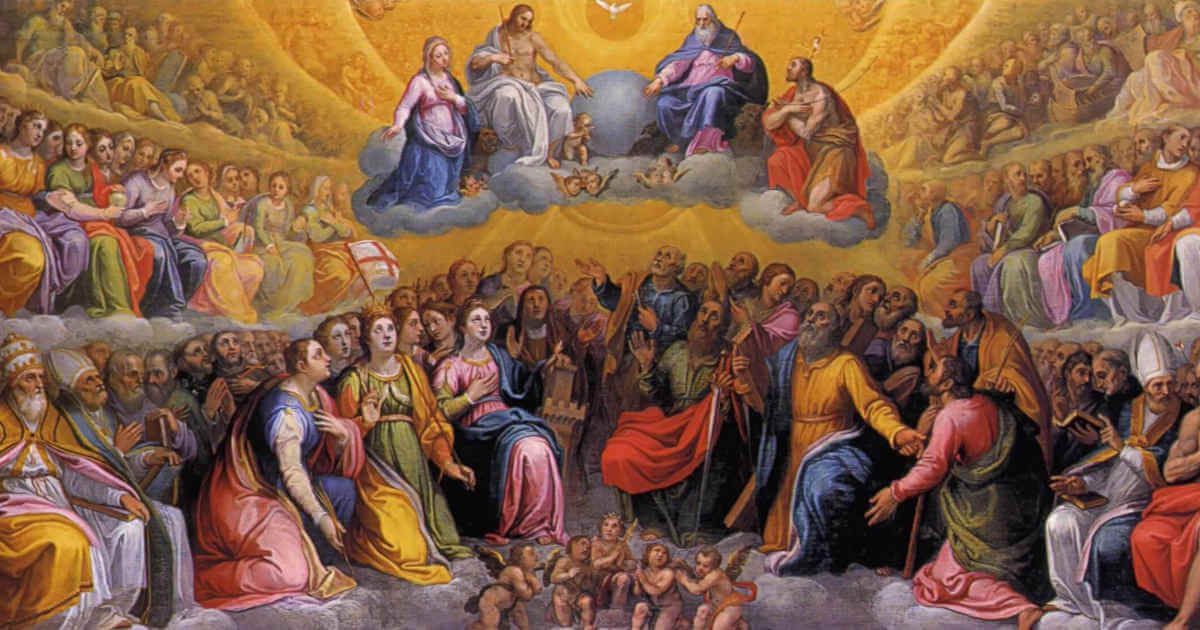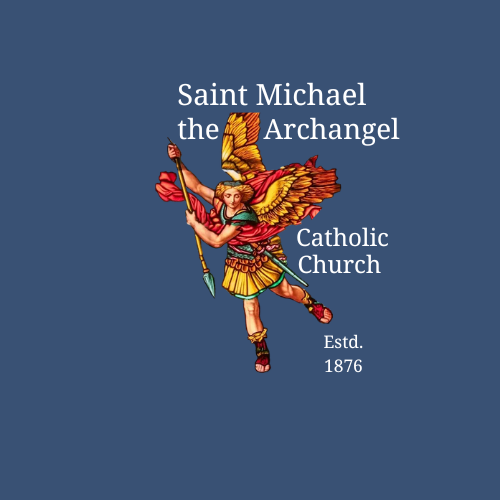
Solemnity of All Saints
Solemnity of All Saints is celebrated on November 1st.
Holy Day of Obligation.
What does the Solemnity of All Saints celebrate?
All Saints' Day is a solemn holy day of the Catholic Church celebrated annually on November 1st. The day is dedicated to the saints of the Church, that is, all those who have attained heaven. It should not be confused with All Souls' Day, which is observed on November 2nd, and is dedicated to those who have died and not yet reached heaven.
Although millions, or even billions of people may already be saints, All Saints' Day observances tend to focus on known saints --that is those recognized in the canon of the saints by the Catholic Church.
All Saints' Day was formally started by Pope Boniface IV, who consecrated the Pantheon at Rome to the Virgin Mary and all the Martyrs on May 13 in 609 AD. Boniface IV also established All Souls' Day, which follows All Saints. The holy day was eventually established on November 1st by Pope Gregory III in the mid-eighth century as a day dedicated to the saints and their relics. The May 13th celebration was subsequently abandoned.
Catholics celebrate all those who have entered heaven, including saints who are recognized by the Church and those who are not.

To see if All Saints is a Holy Day of Obligation for the current year to attend Mass, select this.
Communion of Saints
The concept of All Saints Day is connected to the doctrine of The Communion of Saints. This is Catholic teaching that all of God's people, on heaven, earth, and in the state of purification (Purgatory), are spiritually connected and united. In other words, Catholic and Orthodox Christians believe that the saints of God are just as alive as those on earth, and are constantly interceding on our behalf. Our connection with the saints in heaven is grounded in a tight-knit communion. The saints are not divine, nor omnipresent or omniscient like God is. However, because of our common communion with and through Jesus Christ, our prayers are joined with the heavenly community of Christians.
Saint Cyril of Jerusalem (AD 350) testifies to this belief:
"We mention those who have fallen asleep: first the patriarchs, prophets, apostles, and martyrs, that through their prayers and supplications God would receive our petition..." (Catechetical Lecture 23:9).
The Catholic Catechism concisely describes this communion among believers, by which we are connected to Christ, and thus to one another:
"Being more closely united to Christ, those who dwell in heaven fix the whole Church more firmly in holiness...They do not cease to intercede with the Father for us...So by their fraternal concern is our weakness greatly helped."
"...Exactly as Christian communion among our fellow pilgrims brings us closer to Christ, so our communion with the saints joins us to Christ, from whom as from its fountain and head issues all grace, and the life of the People of God itself: We worship Christ as God's Son; we love the martyrs as the Lord's disciples and imitators, and rightly so because of their matchless devotion towards their king and master. May we also be their companions and fellow disciples!" (Catechism of the Catholic Church, 956, 957)
There are thousands of canonized saints, that is those individuals officially recognized by the Church as holy men and women worthy of our imitation. Because miracles have been associated with them, and their lives have been fully examined and found holy by the Church, we have assurance they are prime examples of holiness, and powerful intercessors before God on our behalf.
-excerpt from churchyard.net
Since we are surrounded by so great a cloud of witnesses, let us rid ourselves of every burden and sin that clings to us and persevere in running the race that lies before us.
Hebrews 12:1
Why do we pray to the Saints for their intercession?
Because we are joined to those who have gone before us through the Communion of Saints, we can call upon the faithful departed for their intercessory prayers for our intentions here on earth.
The Church, in her prayers and liturgies, frequently asks for the intercesion of the saints and those faithful who have gone before us (cf. Catechism of the Catholic Church 957-958, 2647). This pious practice pertains to the doctrine of the Communion of Saints, through which the faithful on earth (the Church Militant) are united as one body with the faithful in Purgatory (the Church Suffering) and the blessed in Heaven (the Church Triumphant). Devotion the saints corresponds in its very essence to the profound reality of the Church as a mystery of communion. (Cf. CCC 948, 961,1476)
We believe in the communion of all the faithful of Christ, those who are pilgrims on earth, the dead who are being purified, and the blessed in heaven, all together forming one Church; and we believe that in this communion, the merciful love of God and his saints is always [attentive] to our prayers. (Bl. Paul VI, CPG 30; cf. CCC 962)
By reason of the fact that those in heaven are more closely united with Christ, they establish the whole Church more firmly in holiness....They do not cease to intercede with the Father for us, showing forth the merits which they won on earth through the one Mediator between God and man (cf. 1 Tm 2:5).... Thus by their brotherly interest our weakness is greatly strengthened. (LG 49)

Read about what the early Church believed on the intercession of the Saints
All Souls is November 2nd
All Souls is a holy day set aside for honoring the dead. It is not the same as All Saints.




